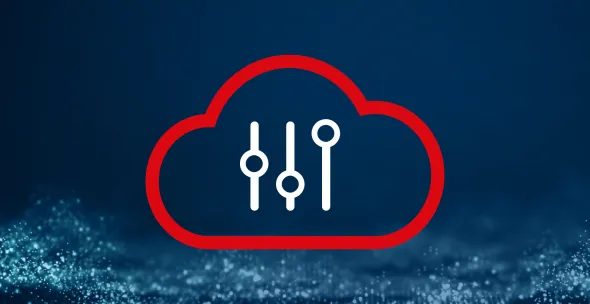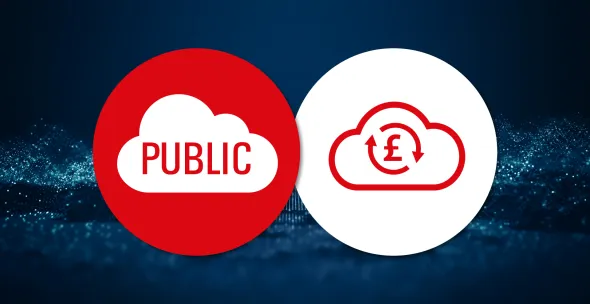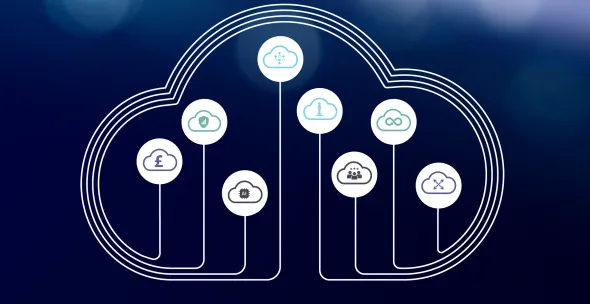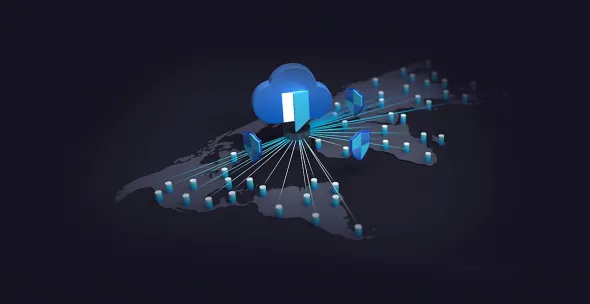Why FinOps needs human expertise

Rich Williams
FinOps Lead
Finance is wonderful because it’s clear; simply follow the numbers and make the right decision for your organisation. While more and more business functions scramble to prove their worth in pounds and pence – either by cutting costs or proving how much they need and why – FinOps emerges as the hero of the hour.
But implementing FinOps to cut your public cloud spending is easier said than done.
Without highly-skilled practitioners, whose broad range of experience enables them to advise on the right approach, businesses may not be deriving maximum value from their FinOps efforts. In this blog, we will demonstrate why organisations who want to control their cloud spend and improve cost reporting benefit most from the human element of FinOps.
What makes a good FinOps practitioner?
FinOps is more than just processes, numbers and data points; it relies on skilled people. So, what skills should they have? They should:
- Understand the nuances of commercial agreements with cloud vendors
- Find the right solution for your business needs
- Advise on the best approach for your cloud purchases so you can save money and improve financial forecasts and reports.
Being able to interpret financial data and present it back to key stakeholders so they can make more informed business decisions is the core of a FinOps practitioner’s role. To do so requires a solid understanding of your organisation’s financial and technological goals.
Why can’t I get AI to do this?
Why, indeed. Some SaaS-based cloud management platforms are already attempting to replicate the work of FinOps professionals and are building LLM-like functionality into their tools. While AI is good at reading data, it fails to understand the context surrounding your situation, and how that affects your intents and needs. By automating the task, many of the current “AI-powered” tools arrive at the wrong conclusion for your business. For example:
- They won’t consider what your financial and technological goals are. They don’t know your roadmap and can’t advise on future contingencies.
- They don’t know why you selected a particular type of Virtual Machine (VM), storage tier or commercial agreement in the first place.
- They often fail to consider contingencies like vendor minimums for providing customer support.
The answer to this question is less exciting than the hype cycle: though the technology appears powerful, it hasn’t surpassed human experts just yet. Without understanding the business context of financial and technological goals, AI tools can’t advise your Chief Technology Officer on the best strategy for managing your cloud so it is fit for purpose at the best price available. To do that requires a human touch.
The devil is in the details
Knowing the nitty-gritty of S3 storage tiers and Microsoft Azure equivalents as well as the different commercial agreements that come with each product type, is essential to optimising cloud usage and in turn controlling cloud spending.
For example, if scalability and flexibility is crucial to your business and its cloud environment, it may be better to use a solution tier with virtual machines that are charged by the hour. You may need to scale up at short notice, then scale down to avoid paying for excess cloud storage that you don’t need. Conversely, agreements or commitments charged at a monthly rate can be cheaper if your usage is generally stable and doesn’t fluctuate frequently.
The best FinOps practitioners are well-versed with the services provided by the likes of AWS and Microsoft Azure. They will know how it works and how you will be billed, to make sure that you’re not overspending on the wrong solution.
Such a blend of technical and commercial expertise is rare. If you manage your cloud environment internally, but your team don’t have experience of maintaining different cloud environments designed for different purposes, they might not know how to align your cloud usage with your business objectives and financial constraints. Moreover, different teams have different goals: while IT might want to build and maintain the best cloud environment for current and future usage, the finance department are looking to cut costs wherever and however they can. Marrying the two, is what external FinOps consultants do best.
How to get from where you are to where you want to be
Guided by your business goals, FinOps practitioners optimise your cloud usage to find the best solution at the lowest cost. To do so, they analyse your existing cloud estate and its intended outputs to find viable alternatives that are more cost-effective or compliant.
Consider an e-commerce business using AWS that creates customised gifts for customers. Whenever a customer uploads a photograph to be used in a customised gift, they might store those photographs in S3 buckets with S3 standard storage for frequently-accessed data. This means they are easy to access, but expensive to store for long periods. In most cases, users will not return to the same photograph to create multiple products over long periods of time, but if they choose to, that image should still be accessible. By switching on Intelligent-Tiering, which is designed to look for automatic cost savings for data with unknown or changing access patterns, they might create a rule that user-uploaded images will automatically be moved to archive storage after 30 days. We recommended this approach for one customer and reduced their AWS storage costs by 90%.
This example showcases the unique combination of skills that FinOps practitioners provide. Much like a data analyst, they can parse the financial data around how much your cloud environment is costing you, how much it is likely to cost based on future usage and then identify areas for cost savings. But more than this, they also act like a data architect, advising why some types of data should be stored in certain object classes or access tiers, consulting on your strategy for data storage and retrieval.
Take good care of your pennies
This advisory and consultative role is best achieved when FinOps teams have a close link to a range of teams.

Fig. 1, FinOps teams sit between the business and the cloud vendor, but only report to the teams they need to.
Business owners and product owners might stipulate what they need from their cloud environment at a general level, without understanding exactly how the changes in their cloud environment will best support those goals. Similarly, executives and senior management may dictate financial aims. FinOps consultants will advise finance and IT teams on the best approach, who then make the necessary changes to their infrastructure. Where they provide the most value to an organisation when they are able to go beyond the day-to-day management of the cloud environment to advise at a strategic level. And this means interacting with all the stakeholders necessary to control their Total Cost of Ownership (TCO).
For example, FinOps practitioners are a significant help for organisations negotiating their Enterprise Discount Programme for AWS or Microsoft Enterprise Agreement (MCA-E) and any resulting MACC (Microsoft Azure Consumption Commitment) agreements. When done well, these can unlock blanket discounts that can save double digit percentages across the entire estate.
But this goes beyond just the cloud. According to the 2025 State of FinOps report, more areas of organisations’ technology spending are expected to be managed by FinOps in the next 12 months. 40% said SaaS spending, up 25% from last year. 49% said licencing, up 21% from last year. Many FinOps practitioners now also assist in managing AI costs. This need for cost visibility, allocation and forecasting is only likely to increase.
The people behind the numbers
By harnessing FinOps, organisations can navigate the commercial nuances of cloud agreements, adopt a consultative approach to drive cost optimisation, and receive advice on reducing overall TCO. But doing so is best achieved by FinOps practitioners who:
- Have a broad range of channel experience and relationships with the hyperscalers
- Can use that experience to find the right solution for your business at the lowest cost
- Can advise at a strategic level whether your cloud environment is best suited to your business and its data, and how to improve that going forward.
Claranet’s FinOps services provide clear insights into spending and cloud utilisation, helping optimise your usage with the guidance of industry experts.
Get in touch with us if you want to enhance cost reporting and ensure your cloud investments align with business goals.
Related articles

Cloud-first, hybrid or on-prem? What’s right for your business?

How to optimise cloud usage and spend with Claranet

How to unlock cloud potential with Managed Public Cloud and FinOps

Bring your cloud to Claranet, and we will provide a FinOps service at no extra charge

Knock knock: using Azure FrontDoor to accelerate, deliver and protect your web services
